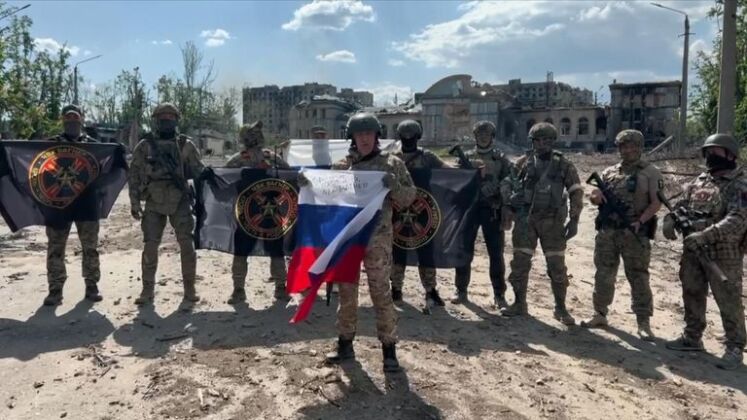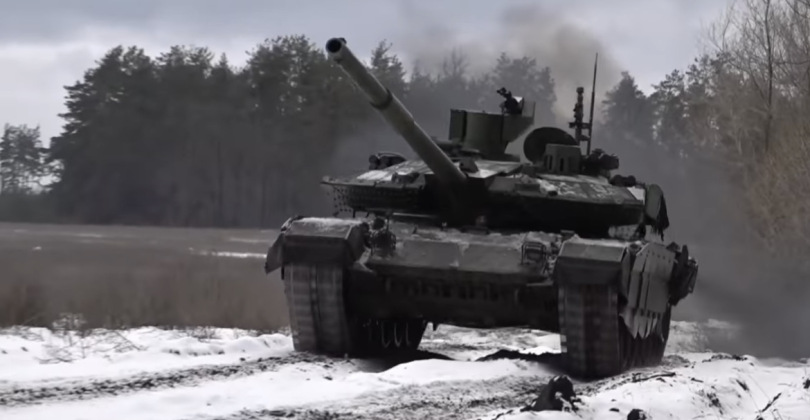News
Russia’s Wagner Group Contractors Capture Key Ukrainian City After 10 Month ‘Meat Grinder’: An ‘Open Road’ For Further Advances
Russian forces spearheaded by contractors from the Wagner Group were reported in the early hours of May 21 to have completely captured the city of the city of Bakhmut in Eastern Ukraine’s Donetsk region – an area which Russia has since September recognised as part of its territory and which was previously part of the self proclaimed Donetsk People’s Republic from 2014. The Russian Defence Ministry reported accordingly, referring to the city by its Russian name Artyomovsk: “In the Artyomovsk tactical direction, the assault teams of the Wagner private military company with the support of artillery and aviation of the southern battlegroup has completed the liberation of the city of Artyomovsk.” The city has seen close to ten months of intensive fighting which began in early August, and with a pre war population of 72,000 it remains one of the most major settlements captured by Russian forces in the 15 month campaign. The city is highly prized by both sides for its role as a major hub for Ukrainian logistics in the region, and its capture places Russian artillery within range to strike Ukrainian Army positions in the larger cities of Kramatorsk and Sloviansk. The town of Chasiv Yar to the west Bakhmut is expected by Western analysts to be the next target of Russian advances. Ukrainian President Volodymyr Zelensky, who reportedly personally ordered the reinforcing of positions in Bakhmut in March, warned at the time that losing the city would “open the road” to significant further Russian advances. “We understand that after Bakhmut they could go further. They could go to Kramatorsk, they could go to Slavyansk, it would be [an] open road for the Russians after Bakhmut to other towns in Ukraine, in the Donetsk direction,” he stated at the time.

The battle for Bakhmut has been among the bloodiest the world has seen since the 1980s, with former U.S. Marine Troy Offenbecker who fought on the frontlines having described “a lot of casualties. The life expectancy is around four hours on the frontline.” As some of the deadliest fighting since the Russian-Ukrainian War began in February 2022, the clashes in Bakhmut were “chaotic” and were dubbed “the meat grinder” by the Ukrainians due to the extreme scale of personnel losses suffered. Konstantin Goncharov, a former Deutsche Welle journalist from Kiev who joined the military when the war began, similarly reported: “In Bakhmut of course its just a meat grinder. Many recruits who go there [pause] its a lottery for their lives.” He further elaborated that the “intensity of fighting and artillery shelling was colossal, even the people who lived through parts of the hybrid war from 2014 in the Donbas,” stressing that Bakhmut in particular saw Russian firepower used on an entirely different scale. Former senior advisor to the U.S. Secretary of Defence U.S. Army Colonel (ret.) Douglas McGregor, reported regarding how Russia approached the campaign in the region “the Russians went over to a defensive posture, and they have ground away at the Ukrainians who poured tens of thousands of soldiers into their meat grinder. The Russians have taken very light casualties compared to the Ukrainians, and the Ukrainians have lost most of their capable forces and capable manpower.” Ukrainian casualties from the fighting in the city by some estimates number in the hundreds of thousands.

The Russian Army has played a less active role on the frontlines in many key parts of Ukraine, allowing to a force of an estimate 60,000 Wagner group contractors, many of then ex convicts recruited from prisoners across the country, to shoulder the bulk of the burden of fighting. The fact that Wagner forces were capable of pushing back against the bulk of Ukraine’s forces was hailed as a major achievement, which leaves Ukraine’s position to tackle the main body of the Russian Military in serious question. After significant initial losses the Russian Army has gained considerable investment in reequipping and modernising its forces, a key example being the surged production of T-90M tanks which are reportedly being produced at a rate of well over 100 per month. Only around 100 of these tanks were in service when the war began, although they quickly demonstrated higher levels of survivability than the older T-72 and T-80 tanks that made up the backbone of armoured units in the war’s early stages. The capture of Bakhmut follows multiple important successes for the Russian military, ranging from the destruction of Ukraine’s Patriot air defence systems supplied by Germany and the United States to guard the capital Kiev, to the serious depletion of Ukraine’s frontline surface to air missile assets which has allowed the Russian Air Force to play an increasingly central role on the frontlines. Western assessments have accordingly increasingly warned that Ukraine is not in a strong position to sustain its war effort.












